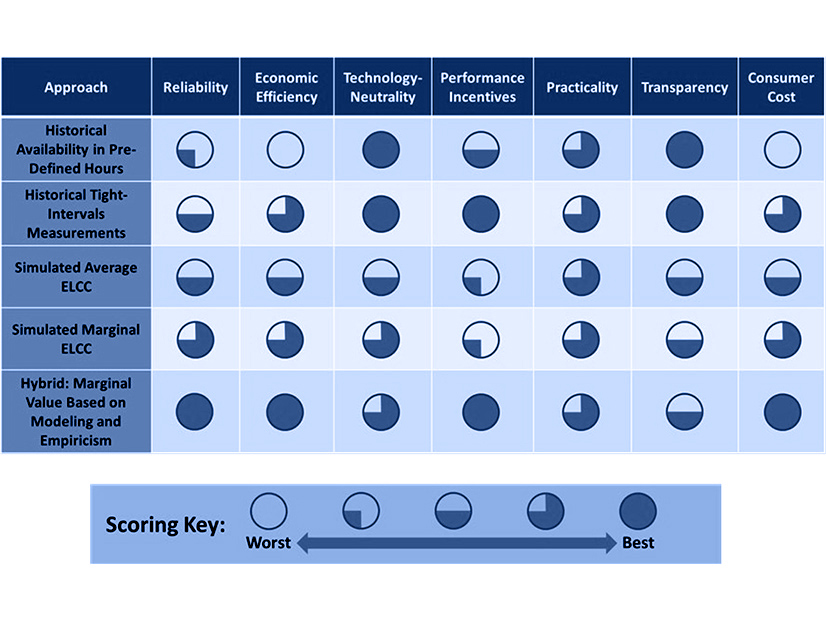
A new report from the Brattle Group, commissioned by the Massachusetts Attorney General’s Office, has weighed in with recommendations for capacity accreditation as ISO-NE and NEPOOL are starting down the path of revamping how they value the contributions of energy resources.
ISO-NE first presented an outline in early June for how it plans to tackle capacity accreditation, starting what will be a yearlong stakeholder process on a significant change to the capacity market. (See ISO-NE Starts its Capacity Accreditation Journey.)
There will be opinions galore on the process, but the new report from the AG’s office is an early and potentially influential one.
The report looks at a number of methodologies for capacity accreditation to replace the region’s current Installed Capacity (ICAP) system, and lands on recommending what Brattle calls a “Hybrid Marginal Reliability Value based on Modeling and Empiricism.”
That option would rely on both historical measurements of resources’ performance and advanced reliability modeling, the report says, and tailor the specifics to New England’s needs and the characteristics of different resources. For example, for resources like wind and solar without batteries, the hybrid system could simulate their performance for an initial estimate, and then use historical measurements to get more specific about how the resources differ from the average of their class.
Accrediting other resources could rely primarily on historical data but also use model-based adjustments to account for outside factors like limitations on fuel. For each type of resource, the report acknowledges, “determining the best hybrid approaches to accreditation will require extensive development and calibration.”
Brattle makes a number of recommendations for while ISO-NE is developing its new approach. For example, the report calls for immediately upgrading accreditation for thermal resources, and not waiting for the full process to be complete.
“We suspect that thermal resources lacking firm fuel backup are the resources whose capacity ratings are most substantially overstated by current ICAP-based accounting methods in New England and therefore pose the most immediate reliability concern,” it says. Delaying application of a marginal value concept to these resources, while rushing it for others, “risks exacerbating present reliability concerns by amplifying economic incentives for resources with the most overstated capacity ratings.”
The report also recommends that ISO-NE improve its reliability modeling and implement seasonal accounting of reliability needs.


